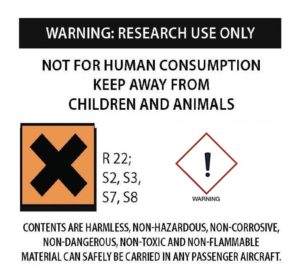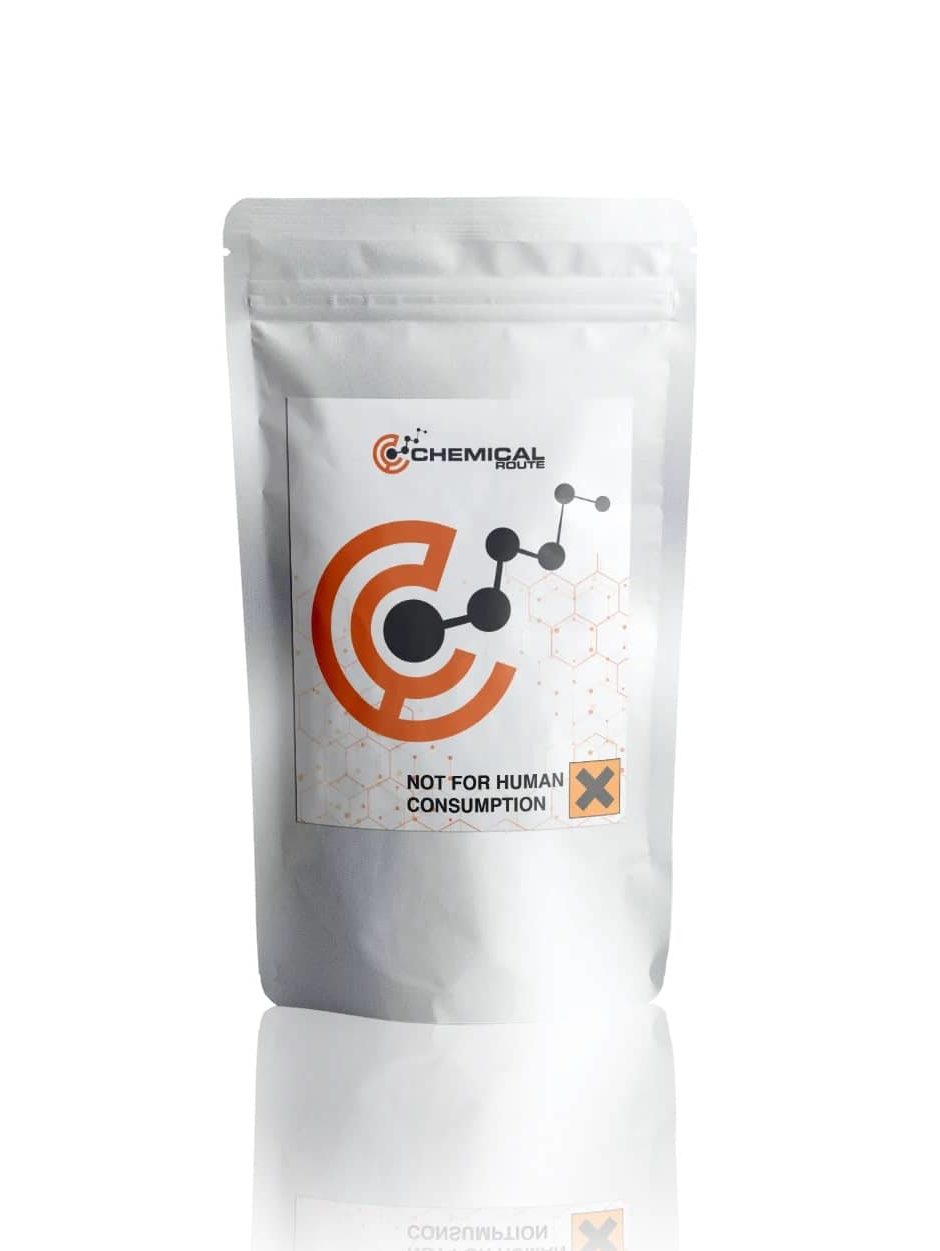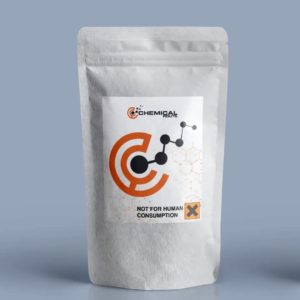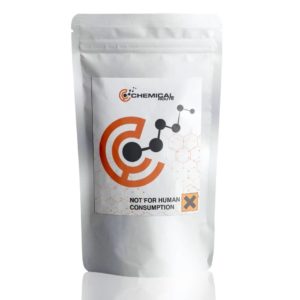Description
MDMB-CHMINACA
Product information
IUPAC-name Methyl (2S)-2-{[1-(cyclohexylmethyl)-1H-indazol-3-yl]formamido}-3,3-dimethylbutanoate
Synonyms (S)-MDMB-
Formal name N-[[1-(cyclohexylmethyl)-1H-indazol-3-yl]carbonyl]-3-methyl-L-valine, methyl ester
Cas number 1185888-32-7
Formula C22H31N3O3
Molar Mass 385.508 g·mol−1
Formulation Powder
Solubility
- DMF: 20 mg/ml
- DMSO: 5 mg/ml
- Ethanol: 20 mg/ml
Shipping & Storage Information
MDMB-CHMINACA which is also known as (S)-MDMB-CHMINACA, MDMB(N)-CHM is an analytical reference standard compound that is categorized as a synthetic cannabinoid. MDMB-CHMINACA is a synthetic cannabinoid that has been sold as a designer drug. It was invented by Pfizer in 2008. It has a binding affinity of 0.35 nM and an EC50 of 0.330. It is similar to the popular drug, MDMB-FUBINACA.
Specifically, it is an indazole-based synthetic cannabinoid, a potent agonist of the CB1 receptor. MDMB-CHMINACA is a derivative of AB-CHMINACA with a similar cyclohexyl group. The aminocarbonyl moiety terminal is replaced with a methyl ester group and the isobutyl moiety is replaced with a tert-butyl group. MDMB-CHMINACA is known as one of the most potent synthetic cannabinoids. The compound acts as a full agonist with a binding affinity with values of 0.0944 nM at CB1 and an EC50 of 0.330 nM.
The drug MDMB-CHMINACA has been synthesized through the indazole-based method and is structurally similar to AB-FUBINACA, a high affinity ligand of the central CB1 receptor. The AB-CHMINACA possesses a cyclohexyl group, whereas the MDMB-CHMINACA has a tert-butyl group. While the drug has no physiological properties yet, its use in forensic applications and research is expected to be limited to research.
The metabolites of MDMB-CHMINACA can be identified using a developed strategy based on LC-QE-HF-MS-MS analysis. The most important reactions observed with MDMB-CHMINACA were hydroxylation and methyl ester hydrolysis. The metabolites produced from dehydration and glucuronidation serve as the main metabolic pathway. The compound has a cyclohexyl methyl tail. The drug was discovered to have a large variety of metabolites in various systems. These metabolites were then identified as potent agonists of the CB1 receptor. This is the first report on a novel molecule that has been commercially distributed as a designer drug.
The chemical structure of MDMB-CHMINACA is still unknown, but it is believed to be a CB1 receptor agonist. Its metabolism is complex and a large number of metabolites were identified in the drug. The drug has a cyclohexyl methyl tail. Moreover, it has been reported to cause allergic reactions. The compound is illegal in Switzerland, and Singapore.
In a study, ADB-PINACA was found to be more potent than MDMB-CHMINACA. It was associated with a higher level of hyperthermia than its sister drug. Compared to ADB-PINACA, MDMB-CHMINACA was significantly less potent than ADB-PINACA. The drug’s affinity to both receptors was inversely correlated, but the higher concentration of ADB-PINACA exhibited lower levels of affinities than the latter.
Both drugs exhibit high affinity for CB1 receptor and have low affinity for CB2 receptor. They have similar K i values. In the study, AB-CHMINACA had higher CB2 binding than FUBINACA. They were able to inhibit both types of NB1 and NB2 channels and decreased sensitivity of both drugs.
AMB-FUBINACA (AB-FUBINACA) is composed of a cyclohexylmethyl-N-pentyl glucuronide moiety. It is a potent agonist of CB2 receptors and has a low affinity for CB1. It is important to note that both drugs have very different biological activities. If you are interested in learning more about MDMB-CHMINACA, you should do your research carefully and stay tuned to this new drug.
The toxicological and physiological properties of this compound has not been analyzed. Usage of this Chemical should be for research and forensic purposes only.
WARNING This product is not for human or veterinary use.

This product is only available to persons of 21 years old and above.
Hazard statement(s)
| H302 | Harmful if swallowed |
| H315 | Causes skin irritation |
| H319 | Causes serious eye irritation |
| H332 | Harmful if inhaled |
| H335 | May cause respiratory irritation |
| H336 | May cause drowsiness or dizziness |
| Precautionary statement(s) | |
| P264 | Wash hands thoroughly after handling |
| P280 | Wear protective gloves/protective clothing/eye protection/face protection |
| P305 + P351 + P338 | IF IN EYES: Rinse cautiously with water for several minutes. Remove contact lenses, if present and easy to do. Continue rinsing. |
| P337 + P313 | If eye irritation persists: Get medical advice/attention |
| P261 | Avoid breathing dust/ fume/ gas/ mist/ vapors/ spray |
| P271 | Use only outdoors or in a well-ventilated area |
| P304 + P340 | IF INHALED: Remove victim to fresh air and keep at rest in a position comfortable for breathing |
| P312 | Call a POISON CENTER or doctor/physician if you feel unwell |
| P403 + P233 | Store in a well-ventilated place. Keep container tightly closed |
| P405 | Store locked up |
| P501 | Dispose of contents/container to a licensed disposal company |





Reviews
There are no reviews yet.